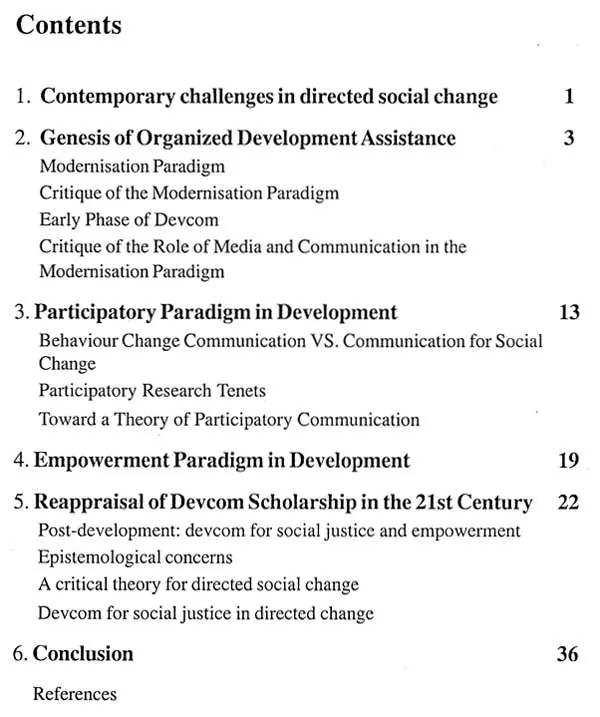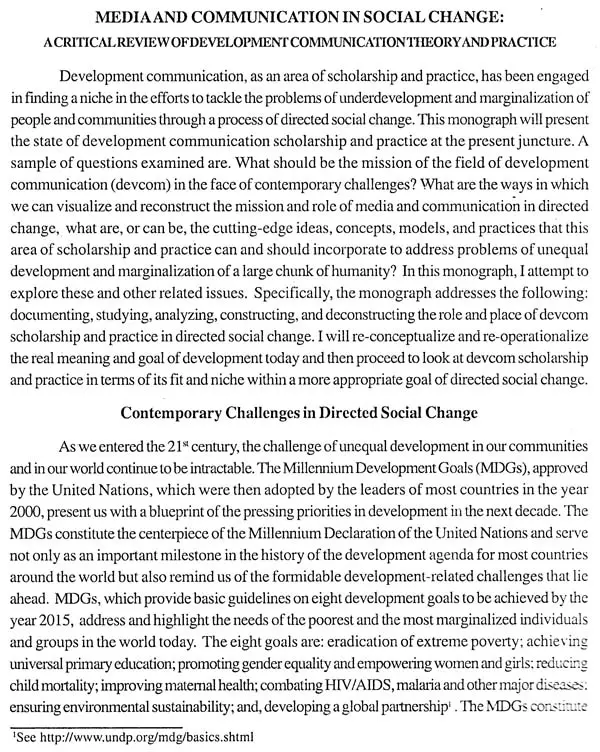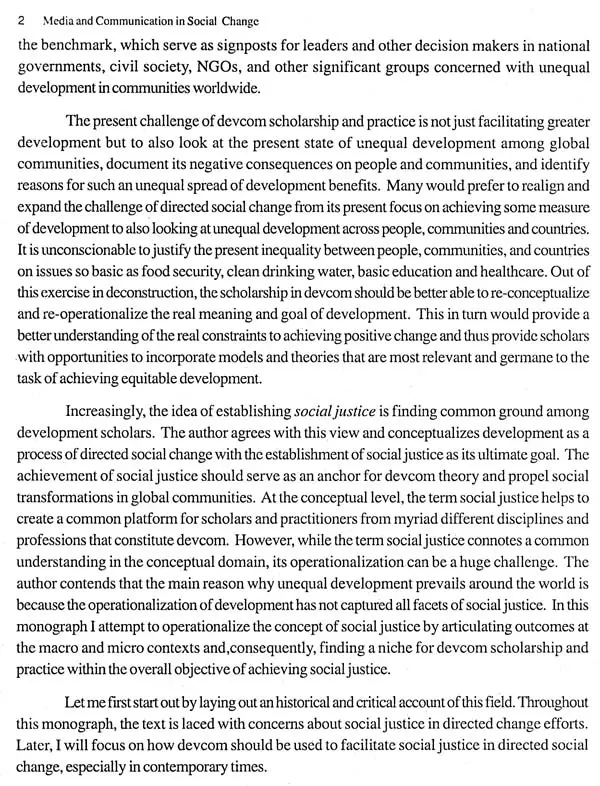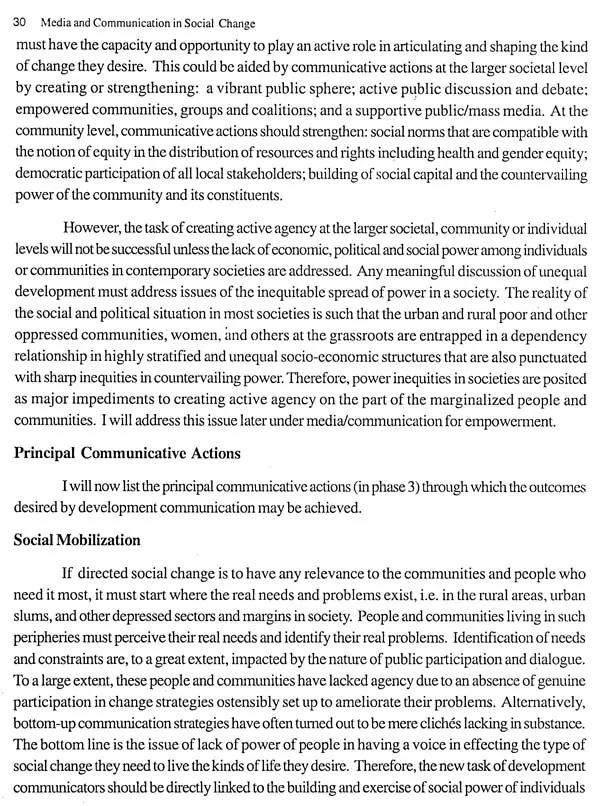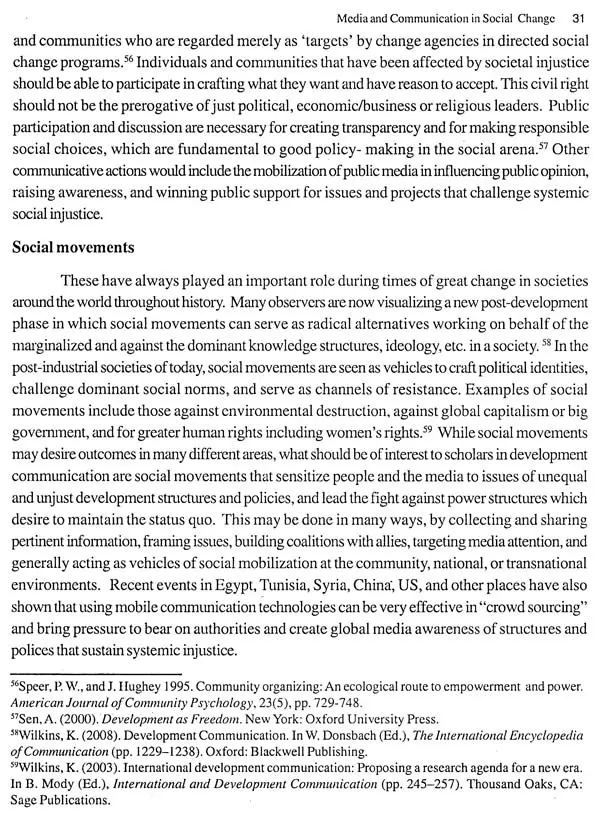
Media and Communication in Social Change: A Critical Review of Development Communication Theory and Practice
Book Specification
| Item Code: | UAK002 |
| Author: | Srinivas R. Melkota |
| Publisher: | University of Mysore, Mysore |
| Language: | English |
| Edition: | 2016 |
| ISBN: | 9788192361963 |
| Pages: | 41 |
| Cover: | PAPERBACK |
| Other Details | 9.50 X 7.00 inch |
| Weight | 120 gm |
Book Description
Media and communication have been playing an important role in the context of development that has reflection on many sectors of our life. It makes a difference when an actress makes appearance on the television and tells candidly the need for latrines to uphold the dignity of the females. That surely has made difference spreading subtly a development message. The MDGs set before us and expectations with which the population looks at the gains flowing out of these goals have greater influence on the country's current phase of development. Devcom (Development Communication) builds the link between people and the pre-set goals. Here, quite a few difficult questions arise and seek answers in the context of development communication. Historically, we have been facing a few development glitches in India especially culminating into delivery of unequal development across social groups as also regions. In order to plug these anomalies, a strong communique conveying positive signals and calling for participation is essential. In the process of economic development, the accompanying social change got truncated and so also the gains of real progress. At the time of independence, we were confronted with a few ideas about development that included the home-grown (village republic) and those of external origin (market centric or centrally controlled). As usual we copied from the experience of the others rather than searching for our own solutions within our institutional confines. We forgot the inclusivity and participatory approach at the village level advocated by Mahatma Gandhi and J C Kumarappa. In fact, Gandhi's understanding of development, was far superior to many contemporary development thinkers. He was a par excellent Devcom person with simplest possible language and down to earth convincing approach. That was the reason that he could get the country around him cutting across the classes and social groups.
**Contents and Sample Pages**

